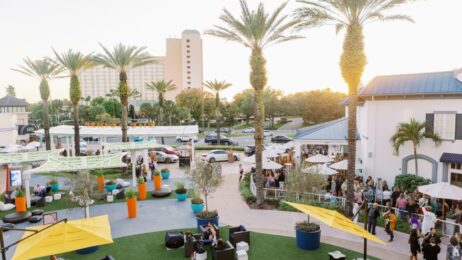The last two years served as a chance to learn the ins and outs of virtual events. So why have 64 percent of surveyed event marketers said they’re only “moderately” or “not effective at all” at creating virtual events that provide value? This is according to a recent study by CMO Council, in collaboration with Cvent, titled “NextGen Events: Optimized for Outcomes.”
This report, based on 150 global marketing leaders with executives from Equifax, GE Healthcare, HCL Software and GfK, delves into what the events landscape—virtual, in-person and hybrid—looks like after Covid, what lessons have been learned and how to best optimize event outcomes.
Fatigue or Value Mismanagement?
As one-on-one, face-to-face conversations come more naturally to humans, it makes sense that we’d approach virtual events the same way. Unfortunately, virtual interactions don’t work as well for us, and the numbers show it.
Read More: Survey Shows Increased Plans for Face-to-Face Meetings in Australia
The NextGen Events study found that 36 percent of respondents were suffering from virtual event registration fatigue and a loss of customer connection. This could be genuine disinterest from attendees, or what the study calls “value mismanagement”—that is, attendees’ expectation that virtual events will deliver the same experience as in-person meetings.
“Virtual events are more about brand reach, in-person events are about nurturing customer relationships that result in higher conversion rates,” the study reads. Virtual events and in-person events won’t deliver the same outcomes because they aren’t supposed to; they play different roles.
Lessons Learned
Before the pandemic, meeting professionals and marketers worked in separate quarters with little contact; in fact, Forrester Research found that 66 percent of event managers planned events with no insight into their company’s marketing campaigns.
Today, things look a little different. CMO Council found that 57 percent of marketers are in organizations where events are owned and managed by their marketing department and are orchestrated across the company. Of those surveyed, 65 percent believe the future of event marketing will include all events—virtual, in-person, hybrid—to better align with marketing outcomes.
Hybrid is Hard
In the study, hybrid events were found to be the least effective event form. Only 36 percent of marketers rated their ability as “effective” or “very effective” out of the four event types: in-person, webinars, virtual and hybrid. Seventy-six percent of respondents reported in-person events as effective or very effective.
Read More: New and Renovated: Meetings Venues for Music Lovers; Hybrid-Friendly Outdoor Options
The ineffectiveness of hybrid events can be due to two major reasons: offering a hybrid option often discourages in-person attendance, and they are expensive.
“A hybrid event is double the cost, double the resources,” says Sonia Sahney, chief marketing officer, molecular scanning and CT scanners, for GE Healthcare. “Because you’re essentially doing what you did in 2019 and adding a virtual presence like you did in 2020,” “At least in my marketing budget for next year, I’ve allocated close to 1.8 times [the money] for hybrid events.”
What’s Next?
It’s not easy to pinpoint the best type of event for these challenging times; there’s no formula, yet. When asked how they’re preparing for future events, 71 percent of respondents said they’ll be experimenting with new event formats, agendas or designs.
A successful event depends on a multitude of factors, including event format, event type, content, and event activities. When applied correctly, these event formats—virtual, hybrid and in-person—can be mixed and matched to create an event that engages and provides value.




